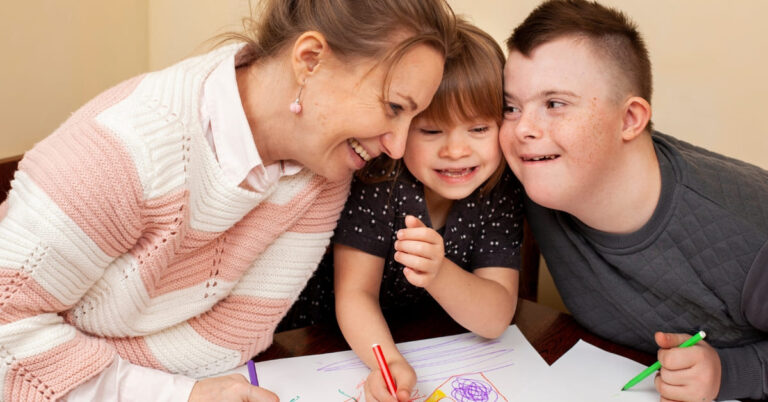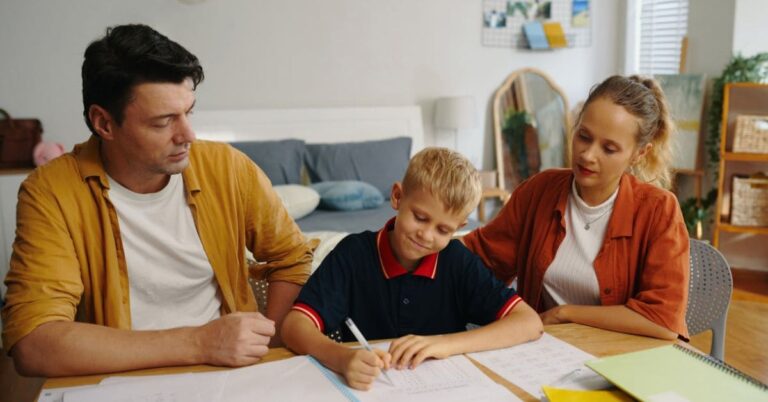Autism, a complex neurodevelopmental disorder, presents a diverse array of challenges for individuals navigating the intricacies of social interactions.
As a leading therapist in Mind Grove Therapy which provides the best ABA Therapy in Mississauga, and with over a decade of experience, I have witnessed firsthand the profound impact autism can have on an individual’s social skills and communication abilities.
Autism and Social Skills are profoundly opposite to each other hence, getting them on the same page can be difficult and requires an expert’s intervention.
Understanding autism is the first step towards providing tailored support and guidance to individuals on the autism spectrum.
It involves recognizing the varied signs and symptoms of autism, embracing neurodiversity within the autism community, and comprehending the wide-ranging effects it can have on social interactions.
In this exploration, we aim to shed light on How Autism Affect Social Skills, Teaching Social Skills to Autistic People, and much more.
Understanding Autism
Autism, scientifically termed Autism Spectrum Disorder (ASD), is a complex neurodevelopmental condition characterized by varying challenges in communication, social interaction, and behavior.
Its diverse manifestations, existing on a spectrum, make it essential to approach understanding with sensitivity and an open mind.
Core traits include difficulties in social interactions, communication hurdles, repetitive behaviors, and sensory sensitivities. Early signs, such as delayed speech and limited eye contact, necessitate early detection for effective intervention.
Embracing neurodiversity within the autism community is key to appreciating the unique strengths and talents that individuals with autism often possess.
By understanding autism in this holistic manner, we pave the way for an inclusive society that supports every individual on the autism spectrum in reaching their fullest potential.
Teaching Social Skills to Autistic People
Teaching social skills to autistic individuals is a nuanced and vital process that requires understanding, patience, and tailored approaches.
Here are five effective strategies to facilitate the development of social skills in individuals on the autism spectrum:
Be a Role Model
One of the most powerful ways to teach social skills to autistic individuals is by being a positive role model. Demonstrating appropriate social behaviors, communication, and interactions can provide a clear and tangible example for them to observe and learn from.
Modeling actions like maintaining eye contact, active listening, and using appropriate gestures helps in building a foundation for effective social interactions.
Provide Prompts
ABA therapy offers gentle prompts and cues during social interactions can guide autistic individuals in understanding the appropriate responses and behaviors.
These prompts can be verbal, visual, or physical, depending on the individual’s needs and preferences.
Providing clear instructions or visual cues can aid in prompting the desired social responses, helping to reduce anxiety and uncertainty in social situations.
Positive Reinforcement
Utilizing positive reinforcement is a highly effective technique in teaching social skills. Rewarding appropriate social behaviors with praise, encouragement, or other incentives encourages individuals to repeat those behaviors.
Tailor the reinforcement to suit the individual’s preferences, as it can greatly motivate them to engage in social interactions and improve their social skills over time.
Practice & Start Small
Structured practice and gradual exposure to social situations are key elements in teaching social skills. Breaking down complex social interactions into manageable, structured steps allows individuals to practice and build confidence.
Starting with simpler interactions and progressively introducing more complex scenarios can help in mastering social skills in a step-by-step, manageable manner.
Staying Informed and Involved
Staying informed about the latest research, therapies, and best practices in autism and social skill development is essential for effective teaching.
Actively involving oneself in the autism community, attending workshops, and participating in advocacy initiatives not only enhances knowledge but also provides valuable networking opportunities and a supportive environment to share experiences and learn from others.
Conclusion
Enhancing social skills for individuals with autism is an essential and transformative endeavor that requires a thoughtful, individualized approach.
The array of strategies and activities presented offer a roadmap to navigate this journey successfully. By being a positive role model, providing prompts, offering positive reinforcement, and starting with manageable steps, we lay the foundation for improved social interactions.
Staying informed and engaged in the autism community ensures that we continuously evolve and adapt our approaches to meet the unique needs of those we seek to support.
Understanding autism as a spectrum allows us to celebrate the diversity and richness of experiences within the autism community.
Empowering individuals on the autism spectrum to develop their social skills not only enhances their quality of life but also enriches our society by fostering understanding, compassion, and meaningful connections.
Together, as a community that values diversity and embraces the beauty of differences, we can create a world where every individual, regardless of their abilities, can thrive socially and reach their full potential.




